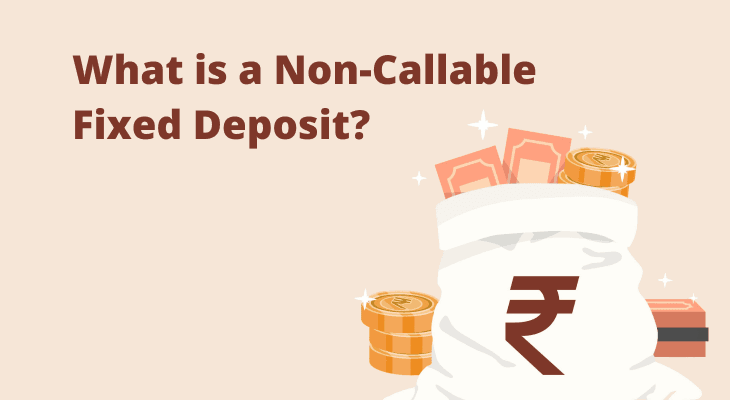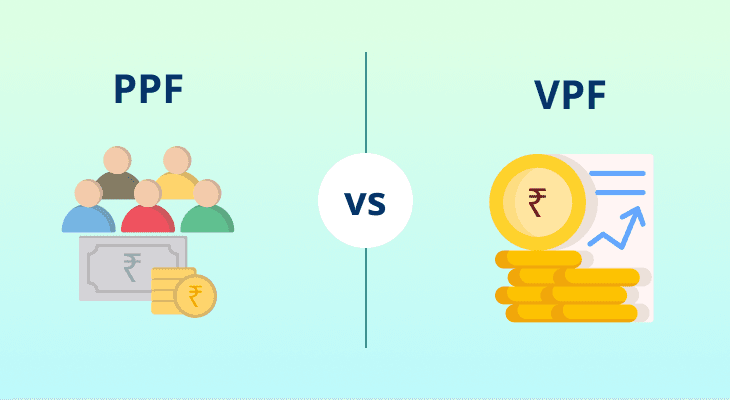
Fixed Deposit vs Recurring Deposit: Which is Better for You?
When it comes to secure investment options, Fixed Deposits (FDs) and Recurring Deposits (RDs) are two of the most popular choices. Both offer stable returns with minimal risk, making them ideal for individuals looking to grow their savings systematically. However, understanding the difference between FD & RD is crucial for choosing the right option based on your financial goals. This guide will help you decide whether FD or RD is better for you.
What Is a Fixed Deposit (FD)?
A Fixed Deposit (FD) is a financial instrument offered by banks and financial institutions where you deposit a lump sum amount for a fixed tenure at a predetermined interest rate. The interest earned is either paid out periodically or compounded and credited at maturity. FDs provide higher interest rates than regular savings accounts and are suitable for those with surplus cash who want stable and predictable returns.
What Is a Recurring Deposit (RD)?
A Recurring Deposit (RD) is a disciplined savings plan where you invest a fixed amount every month for a predetermined period. The bank applies an interest rate like FDs, and the maturity amount includes the principal and accrued interest. RDs are ideal for individuals with a steady income who want to save systematically.
Key Differences Between FD and RD
To better understand FD vs RD, let’s look at their key differences side by side:
Feature | Fixed Deposit (FD) | Recurring Deposit (RD) |
|---|---|---|
Deposit Type | One-time lump sum investment | Monthly fixed investments |
Interest Rate | Generally higher than RDs | Slightly lower than FDs |
Investment Tenure | Flexible (7 days to 10 years) | Typically, 6 months to 10 years |
Suitability | Ideal for surplus funds | Best for disciplined savings |
Interest Payment | Monthly, quarterly, or at maturity | At maturity |
Liquidity | Premature withdrawal possible (with penalty) | Can be closed before maturity (with penalty) |
Risk Factor | Low-risk, fixed returns | Low-risk, fixed returns |
Taxation | TDS applicable if interest exceeds ₹40,000 (₹50,000 for senior citizens) | TDS applicable if interest exceeds ₹40,000 (₹50,000 for senior citizens) |
Benefits of Fixed Deposits & Recurring Deposits
Benefits of Fixed Deposits:
- Higher interest rates compared to savings accounts
- Flexible tenure options
- Assured returns without market-linked risks
- Senior citizen FDs offer even better rates
- Can be used as collateral for loans
- Ideal for individuals seeking risk-free investments
- Multiple payout options—monthly, quarterly, or at maturity—catering to different financial needs
- Helps in long-term wealth accumulation with reinvestment options
Benefits of Recurring Deposits:
- Encourages disciplined savings
- Suitable for individuals with regular income
- Provides similar security as FDs
- It helps in accumulating a corpus for short-term goals
- Allows small, manageable investments with long-term benefits
- Perfect for salaried individuals aiming to build savings without financial strain
- Can be linked to a savings account for auto-debit, ensuring consistent saving habits
Risks Involved with FD and RD
While both FD and RD are low-risk investments, there are some risks to consider:
- Inflation risk: Fixed returns may not keep up with inflation.
- Liquidity constraints: Premature withdrawals attract penalties.
- Taxation: Interest earned is taxable as per the investor’s income tax slab.
Which Is Better for Short-Term vs Long-Term Goals?
- Short-Term Goals (1-3 years): If you have a short-term financial goal like a vacation, emergency fund, or down payment, FD is a better option as it provides higher interest and quick liquidity.
- Long-Term Goals (3+ years): If your aim is disciplined savings for future expenses like education, a car purchase, or home renovation, RD is a better choice as it allows small, regular investments that accumulate over time.
Tax Implications of FD and RD
Both FD and RD interest earnings are taxable under the investor’s income tax slab. Key points to note:
- TDS (Tax Deducted at Source) is applicable if interest earnings exceed ₹40,000 (₹50,000 for senior citizens) in a financial year.
- If your total income is below the taxable limit, you can submit Form 15G/15H to avoid TDS deductions.
- FD interest can be tax-exempt under Section 80C if invested in a tax-saving FD with a 5-year lock-in.
FD or RD - Which is Better?
Finally, the choice between FD and RD depends on your financial situation and goals. If you have a lump sum amount and want to maximize returns, FD is a better choice. If you prefer regular savings with a systematic investment approach, RD is ideal. Consider your cash flow, financial objectives, and risk appetite before making a decision.
Regardless of your choice, both FDs and RDs are reliable investment options that help secure your financial future with assured returns.


